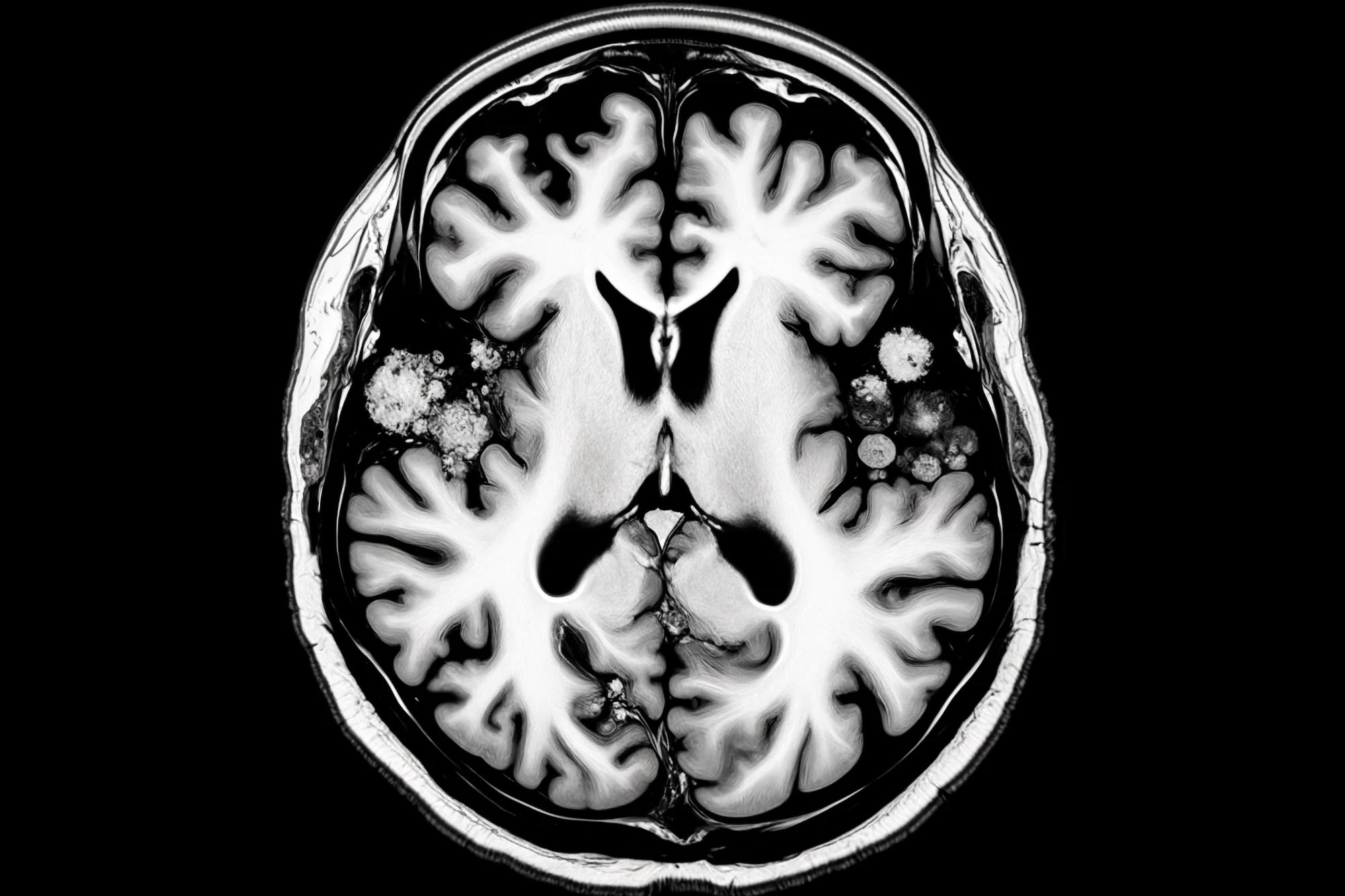ATPL brain disease is becoming a growing concern in the world of neuroscience and medicine. It's not something you hear about every day, but it could be affecting more people than we realize. Imagine your brain as a complex machine that needs regular maintenance. Now, think about what happens when there's a glitch in the system—this is where ATPL brain disease comes into play. This condition affects how your brain processes information, leading to cognitive impairments that can disrupt daily life.
Picture this: you're trying to remember where you left your keys, but your mind draws a blank. Or maybe you're having trouble focusing at work, even though you've had a good night's sleep. These symptoms might seem minor, but they could be early warning signs of ATPL brain disease. As researchers dig deeper into its causes and effects, it's clear that understanding this condition is crucial for maintaining brain health.
So, why should you care? Well, if left untreated, ATPL brain disease can lead to severe cognitive decline, impacting memory, attention, and even personality. But don't worry—we're here to break it down for you. This article will explore everything you need to know about ATPL brain disease, from its causes and symptoms to the latest treatments and prevention strategies. Let's dive in!
Read also:Abby Berner Leak The Inside Scoop You Need To Know
What Exactly is ATPL Brain Disease?
ATPL brain disease refers to a group of disorders affecting the brain's ability to process and store information efficiently. It's like when your computer's hard drive starts slowing down because it's cluttered with unnecessary files. In this case, the brain's "files" are disrupted due to abnormalities in ATP levels, which are essential for cellular energy production. Without adequate ATP, neurons struggle to function properly, leading to cognitive impairments.
Now, let's talk about how this disease develops. Research suggests that ATPL brain disease is linked to genetic factors, lifestyle choices, and environmental influences. For instance, prolonged exposure to toxins, poor diet, and lack of physical activity can all contribute to its onset. But here's the kicker: early detection and intervention can make a significant difference in managing its effects.
Common Symptoms You Need to Know
Recognizing the symptoms of ATPL brain disease is the first step toward getting help. Some of the most common signs include memory loss, difficulty concentrating, mood swings, and trouble with problem-solving. Think of these symptoms as red flags your brain is sending you, saying, "Hey, something's not right!"
Here's a quick rundown of what to look out for:
- Forgetfulness: Struggling to remember recent events or conversations
- Attention Issues: Difficulty focusing on tasks or staying organized
- Mood Changes: Increased irritability, anxiety, or depression
- Problem-Solving Challenges: Trouble making decisions or solving problems
Keep in mind that these symptoms can vary from person to person, so it's important to pay attention to any changes in your cognitive function.
Causes and Risk Factors of ATPL Brain Disease
So, what causes ATPL brain disease? While the exact cause isn't fully understood, researchers have identified several risk factors that can increase your likelihood of developing this condition. Genetics play a big role, but lifestyle choices and environmental factors also come into play.
Read also:Tom Hanks Debunking The Baseless Pedophile Allegations The Truth Behind The Lies
Let's break it down:
- Genetic Predisposition: If someone in your family has been diagnosed with ATPL brain disease, your risk may be higher.
- Unhealthy Lifestyle: Poor diet, lack of exercise, and inadequate sleep can all contribute to the development of this condition.
- Environmental Toxins: Exposure to pollutants, heavy metals, and other harmful substances can damage brain cells over time.
Understanding these risk factors can help you take proactive steps to protect your brain health.
Diagnosing ATPL Brain Disease
Diagnosing ATPL brain disease isn't always straightforward. Doctors typically use a combination of physical exams, cognitive tests, and imaging studies to assess brain function. Think of it like a detective trying to solve a mystery—each piece of evidence helps paint a clearer picture.
Here's what you can expect during the diagnostic process:
- Physical Examination: Your doctor will check for signs of neurological issues, such as muscle weakness or coordination problems.
- Cognitive Testing: These tests evaluate memory, attention, and problem-solving skills to identify areas of concern.
- Imaging Studies: MRI or CT scans may be used to detect structural changes in the brain.
Early diagnosis is key to managing ATPL brain disease effectively, so don't hesitate to seek medical advice if you're experiencing symptoms.
Treatment Options for ATPL Brain Disease
Once diagnosed, there are several treatment options available to help manage ATPL brain disease. The goal is to slow its progression and improve quality of life. Medications, therapy, and lifestyle changes all play a role in the treatment plan.
Here's a closer look at some of the most effective treatments:
- Medications: Drugs like cholinesterase inhibitors and memantine can help improve cognitive function by boosting neurotransmitter activity.
- Cognitive Therapy: Working with a therapist can help you develop strategies to cope with memory loss and attention issues.
- Lifestyle Modifications: Adopting a brain-healthy lifestyle, including regular exercise, a balanced diet, and adequate sleep, can make a big difference.
Remember, treatment plans are personalized, so it's essential to work closely with your healthcare provider to find the best approach for you.
Preventing ATPL Brain Disease
While there's no guaranteed way to prevent ATPL brain disease, there are steps you can take to reduce your risk. Think of it like building a shield around your brain to protect it from harm. By making smart lifestyle choices, you can strengthen your cognitive defenses and keep your brain in top shape.
Here are some prevention tips:
- Stay Active: Regular physical activity boosts blood flow to the brain and promotes neuron growth.
- Eat Right: A diet rich in fruits, vegetables, whole grains, and lean protein provides the nutrients your brain needs to thrive.
- Get Enough Sleep: Quality sleep is crucial for brain health, so aim for 7-9 hours a night.
- Engage Your Mind: Keep your brain sharp by learning new skills, solving puzzles, or playing brain games.
By incorporating these habits into your daily routine, you'll be doing your brain a huge favor.
Top Foods for Brain Health
When it comes to preventing ATPL brain disease, what you eat matters. Certain foods have been shown to support brain function and reduce the risk of cognitive decline. Let's take a look at some of the best brain-boosting foods:
- Blueberries: Packed with antioxidants, these little gems protect brain cells from damage.
- Fatty Fish: Rich in omega-3 fatty acids, fish like salmon and sardines promote brain health.
- Dark Leafy Greens: Spinach and kale are loaded with vitamins and minerals that support cognitive function.
- Nuts and Seeds: Almonds, walnuts, and flaxseeds provide healthy fats and antioxidants.
Adding these foods to your diet can give your brain the fuel it needs to stay strong.
Living with ATPL Brain Disease
Being diagnosed with ATPL brain disease doesn't mean your life has to come to a screeching halt. With the right support and strategies, you can continue living a fulfilling life. It's all about adapting and finding new ways to do the things you love.
Here are some tips for living well with ATPL brain disease:
- Stay Connected: Surround yourself with supportive friends and family who understand what you're going through.
- Set Realistic Goals: Break tasks into smaller steps to make them more manageable.
- Use Memory Aids: Tools like calendars, reminders, and notes can help you stay organized.
- Stay Positive: Focus on what you can do, rather than what you can't.
Remember, you're not alone in this journey. There are countless resources and communities available to help you navigate life with ATPL brain disease.
Support Groups for ATPL Brain Disease
Joining a support group can be incredibly beneficial for those living with ATPL brain disease. These groups provide a safe space to share experiences, exchange advice, and connect with others who understand what you're going through.
Here are a few popular support groups:
- Alzheimer's Association Support Groups
- Local Cognitive Health Meetups
- Online Forums and Communities
Don't hesitate to reach out and find the support you need.
Research and Advances in ATPL Brain Disease
Exciting advancements are happening in the field of ATPL brain disease research. Scientists are working tirelessly to uncover new treatments and therapies that could change the game for those affected by this condition. From cutting-edge medications to innovative brain-training programs, the future looks promising.
Here are some of the latest breakthroughs:
- Gene Therapy: Researchers are exploring ways to modify genes associated with ATPL brain disease to prevent its onset.
- Neurofeedback: This technique uses real-time brain activity data to help individuals train their brains to function better.
- Stem Cell Research: Scientists are investigating the potential of stem cells to repair damaged brain tissue.
These developments offer hope for a brighter future in the fight against ATPL brain disease.
Conclusion: Taking Control of Your Brain Health
In conclusion, ATPL brain disease is a serious condition that affects cognitive function and quality of life. But with early detection, proper treatment, and proactive prevention strategies, you can take control of your brain health. Remember, knowledge is power, and understanding this condition is the first step toward managing it effectively.
So, what can you do next? Start by making healthy lifestyle choices, staying informed about the latest research, and seeking medical advice if you're experiencing symptoms. And don't forget to share this article with others who may benefit from learning about ATPL brain disease. Together, we can raise awareness and support those affected by this condition.
Table of Contents
What Exactly is ATPL Brain Disease?
Common Symptoms You Need to Know
Causes and Risk Factors of ATPL Brain Disease
Treatment Options for ATPL Brain Disease
Living with ATPL Brain Disease
Support Groups for ATPL Brain Disease


